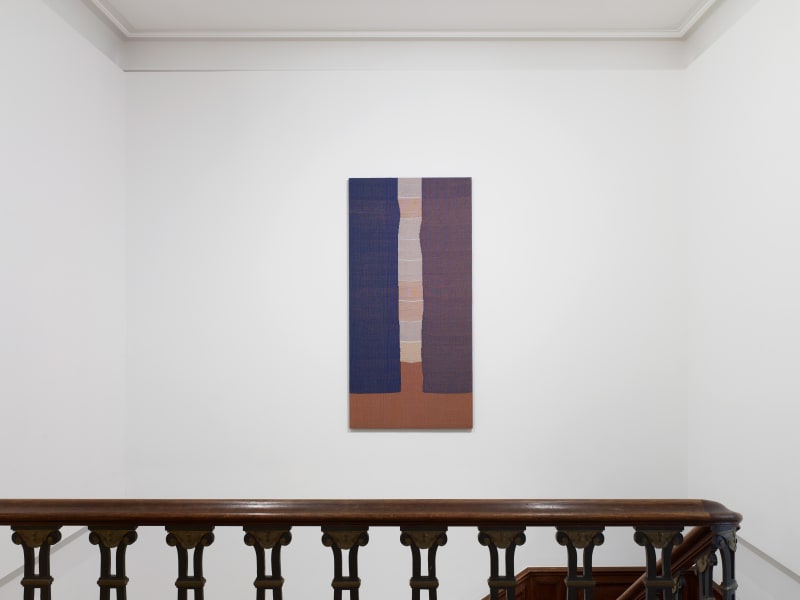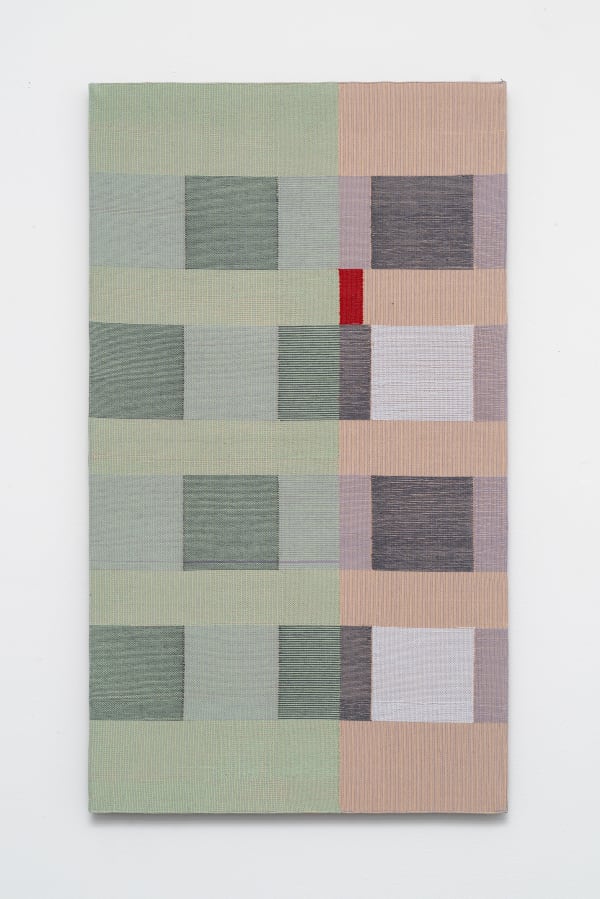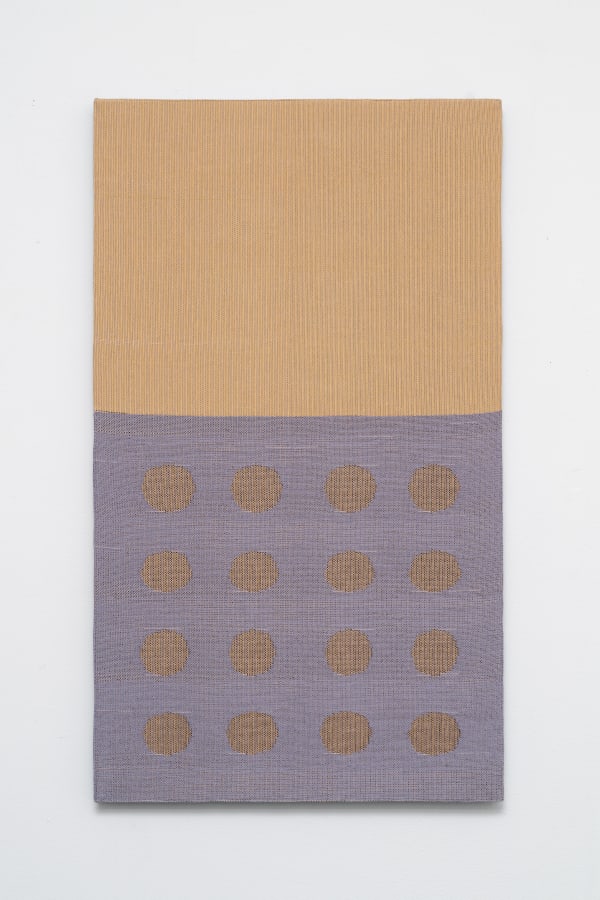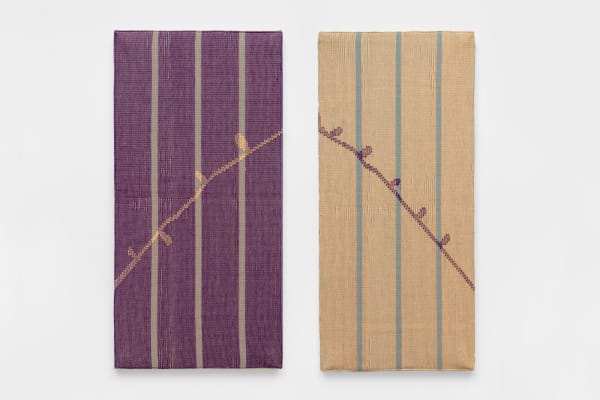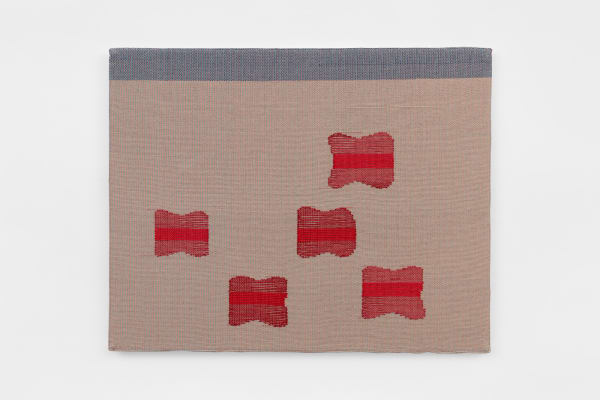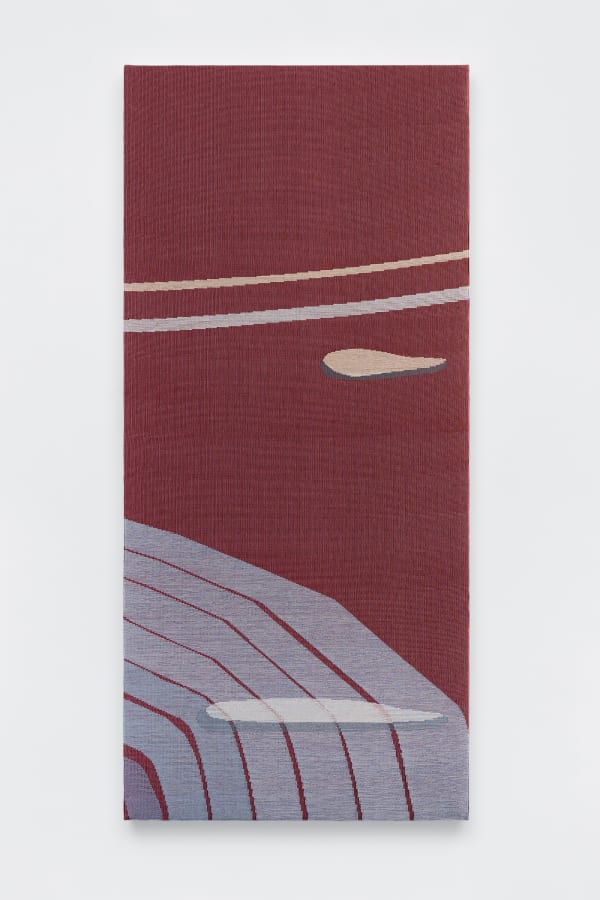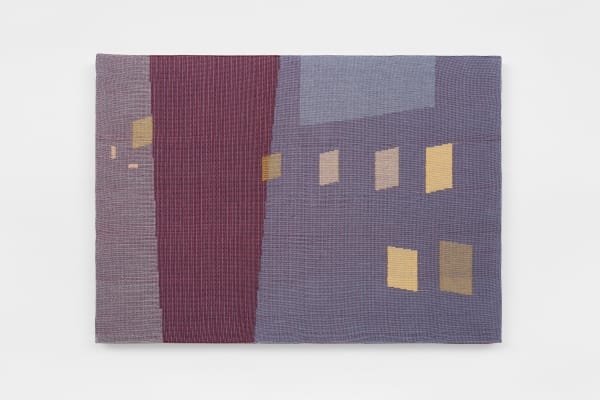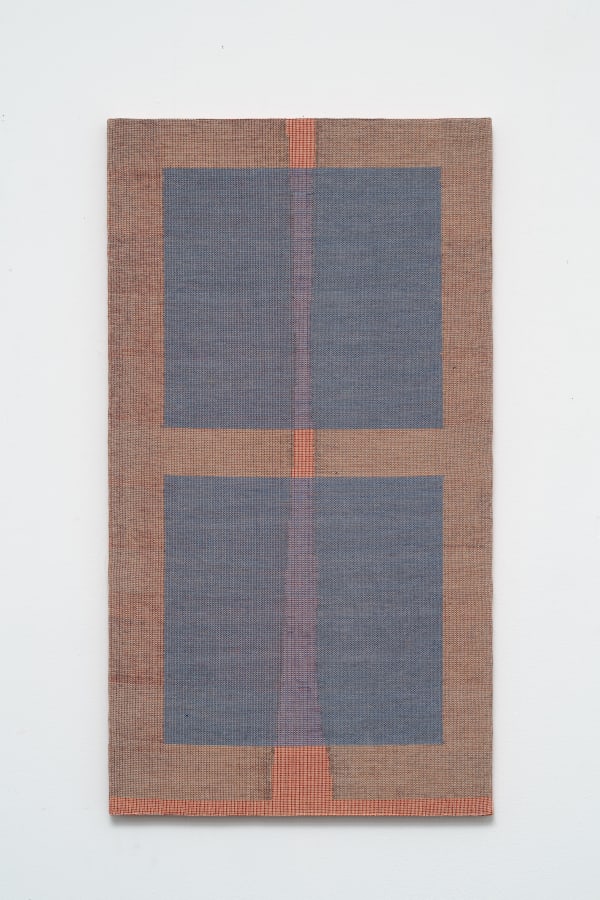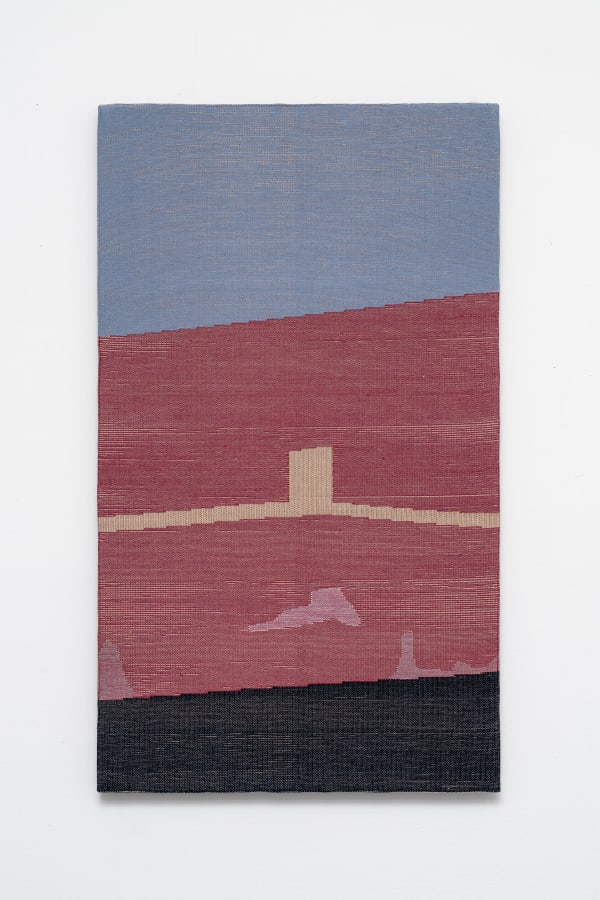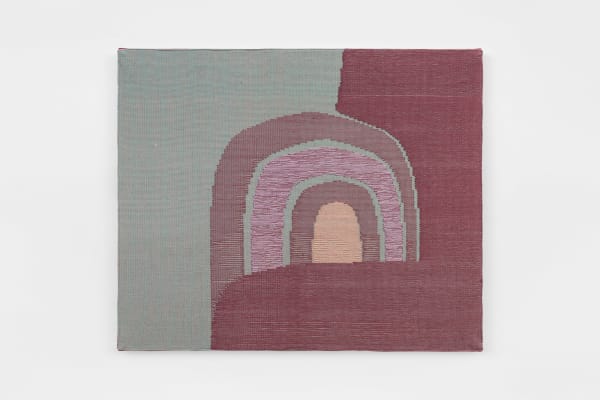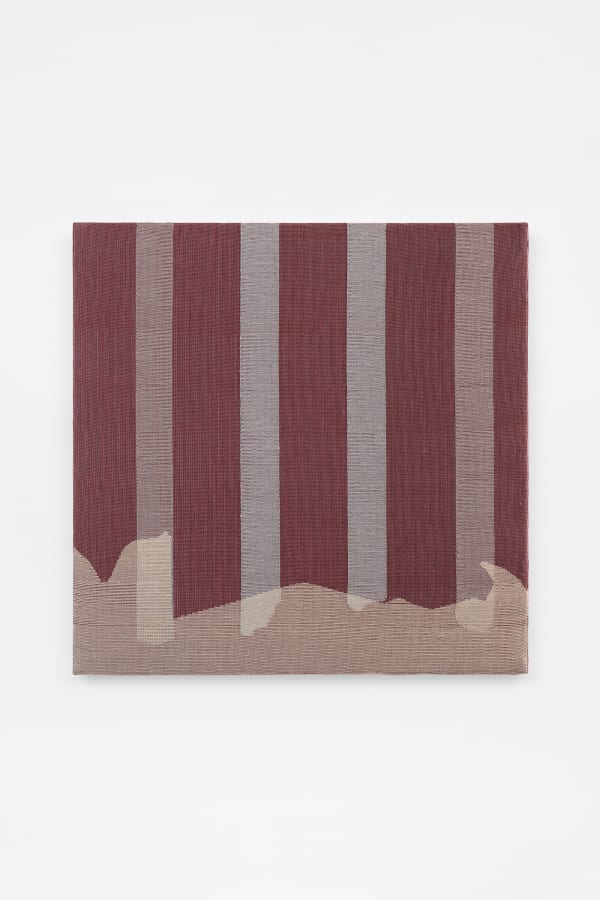Mendes Wood DM is pleased to announce Miranda Fengyuan Zhang's first solo show in Belgium. The exhibition features a new group of Zhang's hand-woven paintings as well as an installation made with a reappropriated 19th century French divider. Zhang often utilizes the formal practice of weaving to create a spatial narrative of her most intimate recollections.
Thus to sleep is sweeter than to wake interrogates the luring sensation of dreams, offering a passage to an imaginary realm.
Floating Windows, the centerpiece of the show, is an antique three-fold divider which serves as the framework for a series of woven paintings. Originated in China (4th century BC) as a device to shield from the wind, the screen divider gradually spread to the rest of the world and to this day has become a more ornamental object. Zhang contemplates both the object's change of identity as well as the loss of its original function and, by extension, questions its cultural and historical
raison d'être. To Zhang, the divider becomes a symbolized entity that both invites and refuses to be read. In Zhang's woven paintings, the recurring window motif is rotated, translated, and expanded as it interacts with the underlying cartesian strips. This divider screen becomes a prelude to a lucid dream.
Windows, passages, entrances, and openings are the recurring subjects of the exhibition, leading visitors to the realm of the possible, of what might have been, of an alternative trajectory, a dreamscape. Zhang's work alludes to the beauty of this liminal state, converging in spirit with the old Chinese idiom 镜花水月,
jing hua shui yue, which translates to "flowers in the mirror and the moon in the water", symbols of unattainable fantasies that produce profound longings but also awareness of the distance between illusion and reality.
As the 19th-century English writer Christina Rossetti says in her poem
I Dream of You to Wake, sometimes dreams can be an antidote to reality. The show invites viewers to gaze through "windows within windows", to dream the undreamable, "thus to sleep is sweeter than to wake".
Miranda Fengyuan Zhang (b. 1993, Shangai, China) lives and works in New York.
Miranda Fengyuan Zhang embraces cultures and ties them together using fragments of wools. The concept of "recycling" what is considered abandoned is inspired by her grandmother, who, during difficult times, unraveled jumpers to knit new ones, creating interesting shapes and unexpected color palette, which goes beyond the idea of recycling, and speaks of parental love and the connection between external and internal beauty. In her work Zhang creates semi-abstract gardens, vaguely concrete landscapes, animal silhouettes, tranquil rivers, and layers of colorful mountains, celebrating the mythology of life and nature.
In Zhang's practice material dominates, and ideas follow. She perceives the color, texture and temperature of the wool and lets the material show the way to mystical enlightenment. Her work creates a Garden of Eden, where she emerges herself in a kingdom of colors, cool evenings in the desert, or quiet afternoons over the lake. She further extends the palace of her memories to capture the hidden power within seemingly mundane objects. Like traditional Chinese ink paintings, Zhang's way of working does not allow fixing or adjusting, but rather is an improvised process lead by momentary inspiration and technical skills.
The artist has had solo exhibitions at Mendes Wood DM, São Paulo (2022); Candice Madey, New York (2021); Capsule, Shanghai (2021); Halsey Mckay Gallery, East Hampton (2020).
Additionally, Zhang's work has also been included in group shows at Mendes Wood DM, Retranchement (2022); CLEARING, New York (2022); OCAT Xi'an (2022); Shanghai Duolun Museum of Modern Art (2021); Halsey McKay Gallery, East Hampton (2021).
